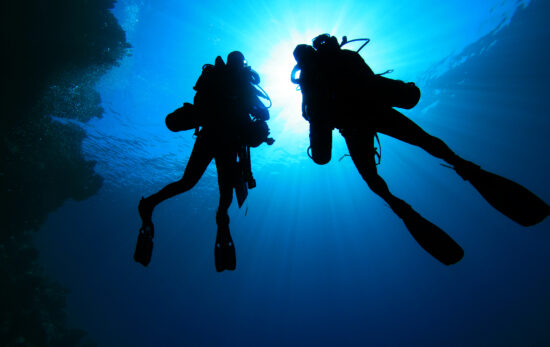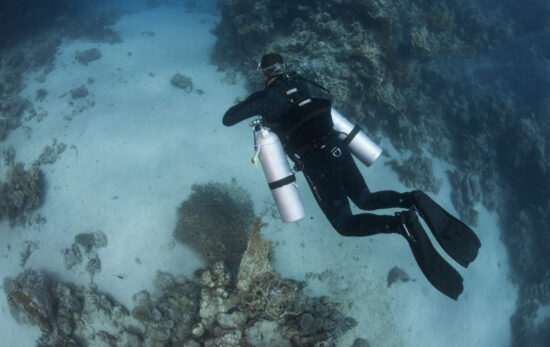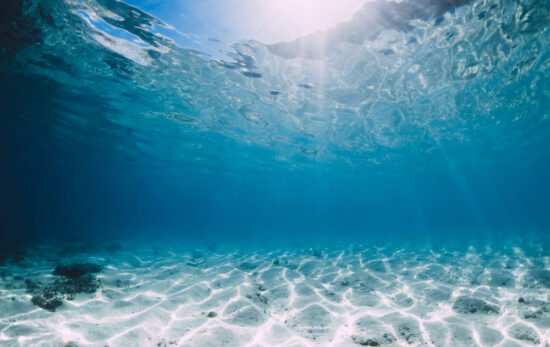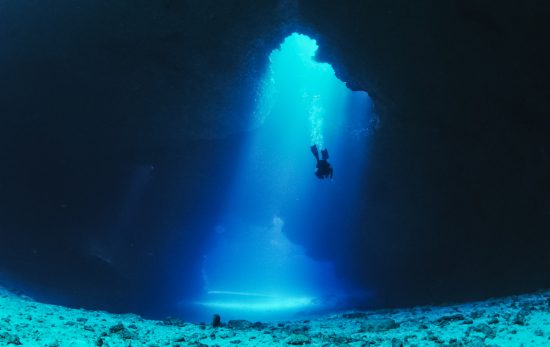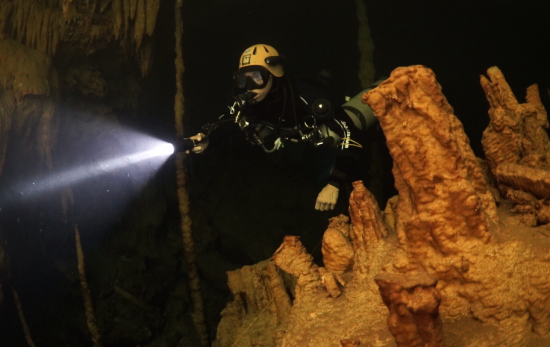In this article, we meet technical diver Martin Robson and learn more about his influence in the technical diving industry. Robson was interviewed by a member of PADI staff, and this article was originally published on the TecRec blog on September 15, 2010.
What is your background and current involvement in diving?
I started diving on a rebreather in the early 1980s in the military. In the 1990s, I became interested in the emerging sport of technical diving and, in particular, cave diving as a means to dive and explore remote and undiscovered environments. In 1997, I became a full-time instructor and started EAU2 Advanced Diver Training, specializing in technical diving, particularly overhead environments and rebreathers. I now teach technical divers, instructor and instructor trainers throughout Europe, Eastern Europe, Russia and North America.
What PADI/TecRec certifications do you have?
- Tec 100 CCR Instructor Trainer (on several units)
- Tec Trimix Instructor Trainer
- Trimix Blender Instructor Trainer
- Tec Sidemount Instructor Trainer
- Rebreather Instructor Trainer on all Type R Rebreathers
- Tec Support Diver Instructor Trainer
- Tec Rescue Instructor Trainer
I am also a Technical Field Consultant for PADI and have worked with them to develop and launch the Rebreather, Tec CCR, Sidemount and Tec Sidemount courses.
How did you get into tec diving?
Having learnt to dive on a rebreather in the military, my first recreational dives were recreational PADI courses and dives but the opportunity to dive in places where few if any people had been quickly led me to seek technical diver training with instructors, such as Tom Mount, Kevin Gurr and Paul Heinerth.
Do have any specialized areas of interest?
Cave diving is my true passion; it is the most exciting environment, and I relish the challenges and rewards it brings.
What do think the greatest challenges are in this kind of diving?
On a personal level, the greatest challenge is constantly seeking to improve.
What are the most important attributes of a tec diver for the type of diving you do?
Self-discipline, a desire to keep on learning and a motivation that comes from a love of diving rather than a desire for fame and fortune.

What are the most likely mistakes a tec diver can make in your kind of diving?
The saying ‘poor preparation leads to poor performance’ could have been written with technical diving in mind.
How do you prepare for a demanding technical dive?
Repetition – nothing prepares you for diving better than diving. Logistics must be well organized and people well managed. This is often more challenging than envisaged. Before the dive, I mentally rehearse the planned dive over and over again.
What were your best tec diving experiences?
My best experience is reaching the end of a line in a cave and knowing that I am the first human being to ever visit that place!
What influences your selection of dive gear?
It must be the right tool for the job, be as simple as possible but reliable and easy to maintain.
What kind of person do you want diving in the same team as you?
A team player who shares the team philosophy and goals, who is self-disciplined, works hard and who can be relied upon when the chips are down but also knows how and when to have fun.
What advice would you give to someone thinking of getting into tec diving?
Choose your instructor carefully, make sure they are an active technical diver and experienced instructor in the area you wish to train in. Don’t underestimate experience – do as much diving as you can and don’t rush. There are amazing diving experiences to be had at every level, and I would be sorry to have missed out on any of them.



